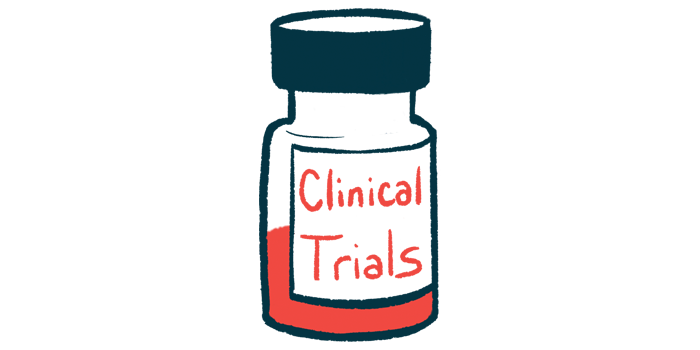Clinical Trials of Parkinson’s Therapies Robust Despite COVID-19
Written by |

Despite the impact of the COVID-19 pandemic, investment and interest in clinical trials of potential new treatments for Parkinson’s disease remains strong, according to a report.
The study suggests that the landscape of developmental Parkinson’s treatments has changed little over the last year, with researchers noting a slight increase in the proportion of disease-modifying treatments under early investigation.
“The main take away from the analysis is that there is a very rich pipeline of novel therapies being developed for Parkinson’s — which is extremely encouraging considering the difficulties Parkinson’s research has faced over the last 12 months,” Simon Stott, deputy director of research at Cure Parkinson’s in the U.K. and a study co-author, said in a press release sent by email to Parkinson’s News Today.
Results were in the paper “Parkinson’s Disease Drug Therapies in the Clinical Trial Pipeline: 2021 Update,” published in the Journal of Parkinson’s Disease.
A team of researchers and Parkinson’s advocates — including two people living with the disease — reviewed clinical trials registered in online databases, to give an overview of the landscape of Parkinson’s drug development. The team performed a similar analysis last year.
“The aim of this report is to help people living with PD [Parkinson’s disease], caregivers, and researchers to navigate the growing number of clinical trials by providing an overview and analysis of the current PD drug development pipeline,” the researchers wrote.
“We also aim to raise awareness regarding the shape of the pipeline and the individual trials contained therein with the ultimate aim of contributing to greater participation and better trial outcomes,” they added.
Researchers identified 156 relevant clinical trials on ClinicalTrials.gov and registries from the World Health Organization (WHO). About one-third (34.6%) were Phase 1 studies (the earliest phase of clinical development), while 46.8% were Phase 2, and 18.6% were Phase 3 (the latest stage of development).
The team provided an overview of the treatments being tested; in particular, they assessed whether trials were testing symptomatic treatments — that is, therapies aiming to ease Parkinson’s symptoms — or disease-modifying therapies (DMTs), which aim to slow or stop its progression.
Of note, the proportion of Phase 1 and Phase 2 trials testing DMTs was higher in this analysis than it had been in last year’s, with roughly 54% of Phase 1 trials and 47% of Phase 2 trials testing investigational DMTs.
In contrast, two Phase 3 clinical trials were evaluating DMTs — one testing exenatide, and the other testing memantine.
“The fact that there are only two DMT phase 3 trials is … disappointing,” the researchers wrote.
Both of these medications are approved for other indications (exenatide is used for diabetes, and memantine for Alzheimer’s), and are being tested for potential benefit in Parkinson’s. In fact, over a third (34.5%) of the ongoing clinical trials are for similarly “repurposed” therapies, which is similar to what was found last year.
“The distribution of novel, repurposed, reformulations and new claim therapies remained similar to 2020, but it is interesting to note that repurposed therapies still represent approximately a third of all the trials in our analysis, including the only two phase 3 DMTs,” the team wrote.
In comparing the trials included on this year’s and last year’s list, the researchers noted that 45 trials are no longer on the list. Over half were completed, whereas the rest were terminated (four), withdrawn (two), or moved to unknown status (14). Conversely, 42 trials on this year’s list weren’t on last year’s.
“It is encouraging that only two PD trials on the ClinicalTrials.gov were withdrawn due to COVID-19,” the researchers wrote.
The researchers highlighted several treatments being tested in these new trials, including investigational molecules aiming to disrupt alpha-synuclein aggregates, compounds that alter the activity of the immune system, and insulin administered into the nose. They also noted that several finished trials are for treatments at “in between” stages of development, with future clinical testing likely.
“Despite the effects of the coronavirus pandemic, investment and effort in clinical trials for PD appears to remain strong,” the team wrote. “There has been little change in the profile of the clinical trial landscape even though, over the past year, there has been considerable change to the content of the list.”
Clearly, “a very large investment continues not just in financial terms and the dedication of health professionals, but also in the contribution of trial participants with PD, and healthy volunteers. We thank them all,” they concluded.






